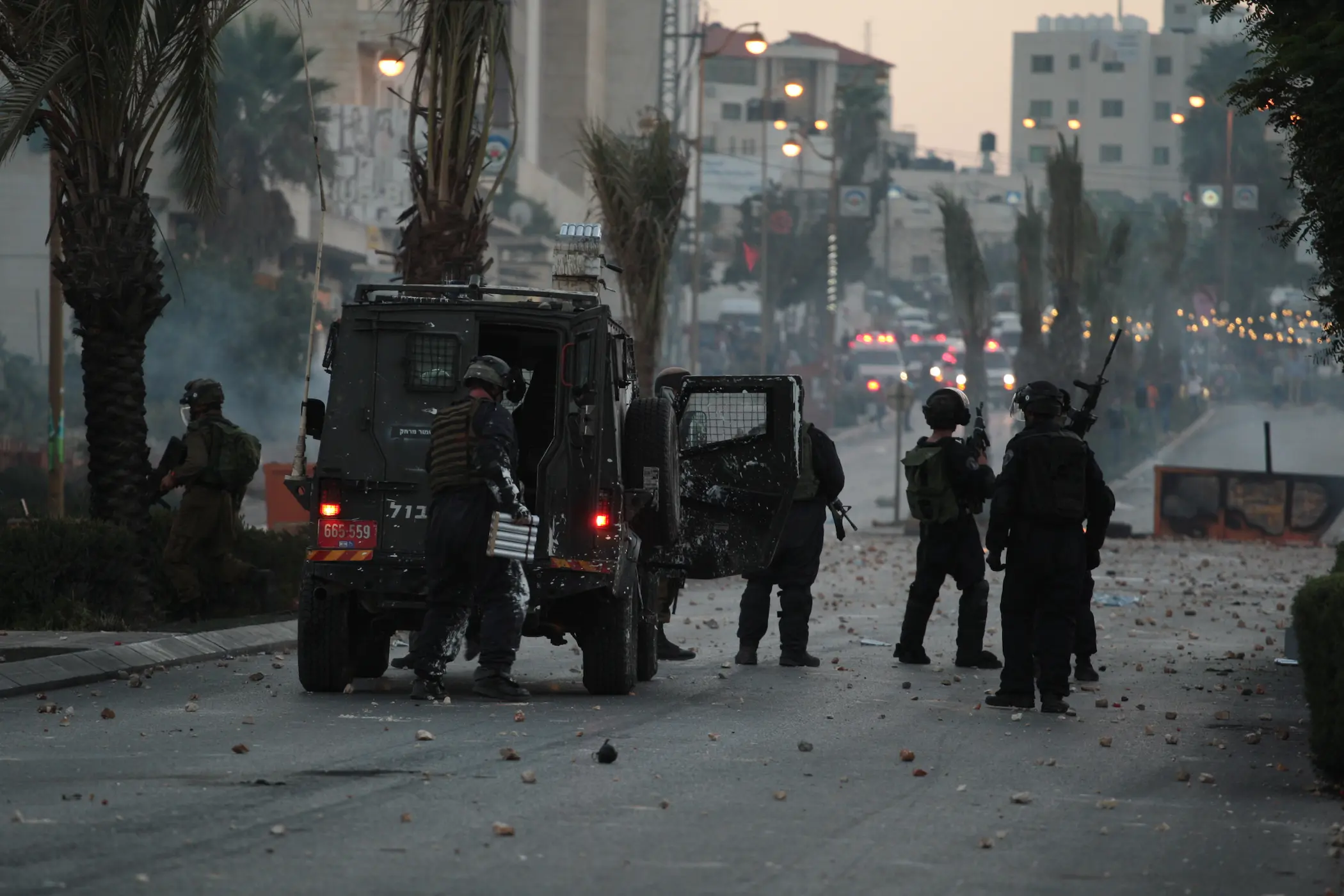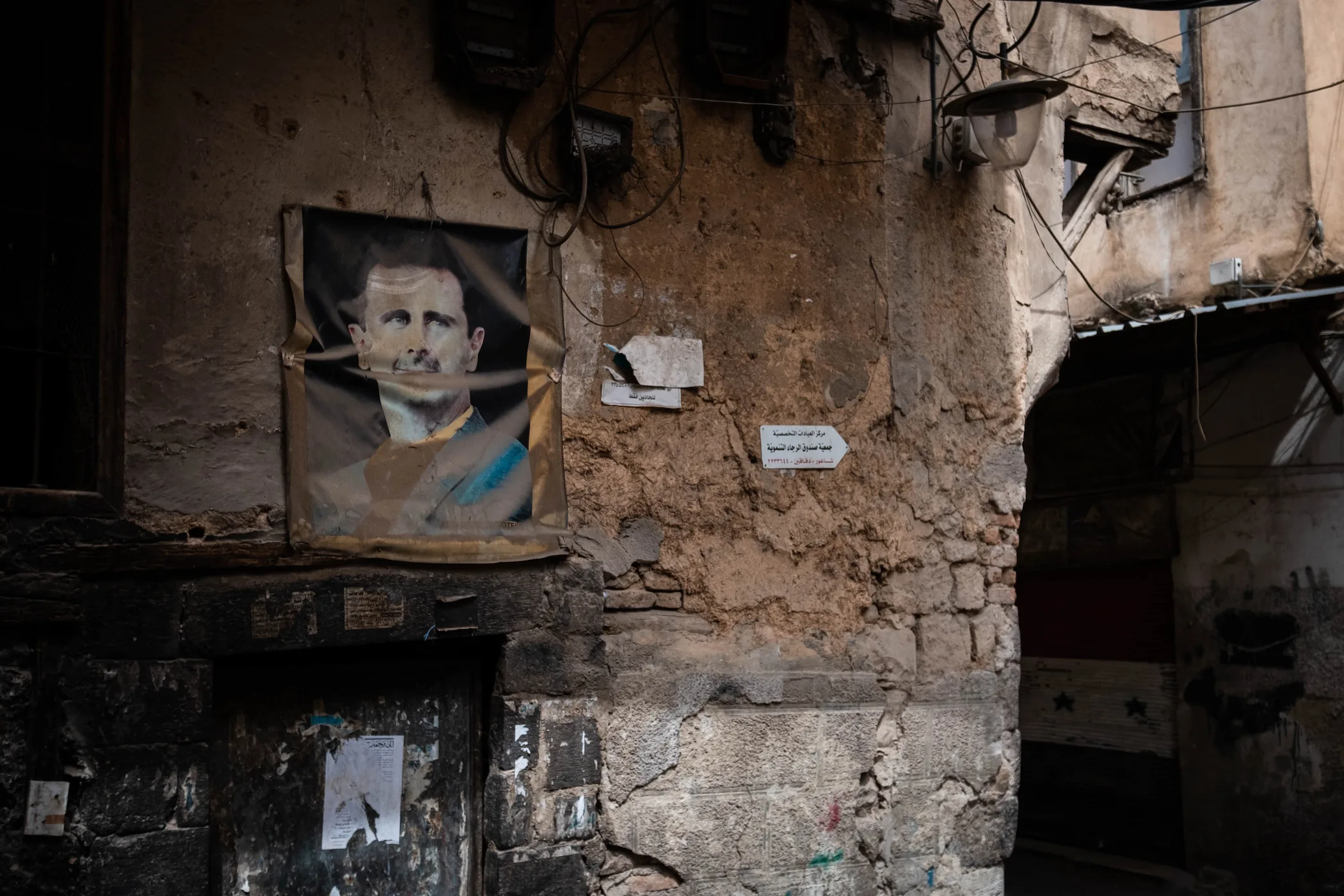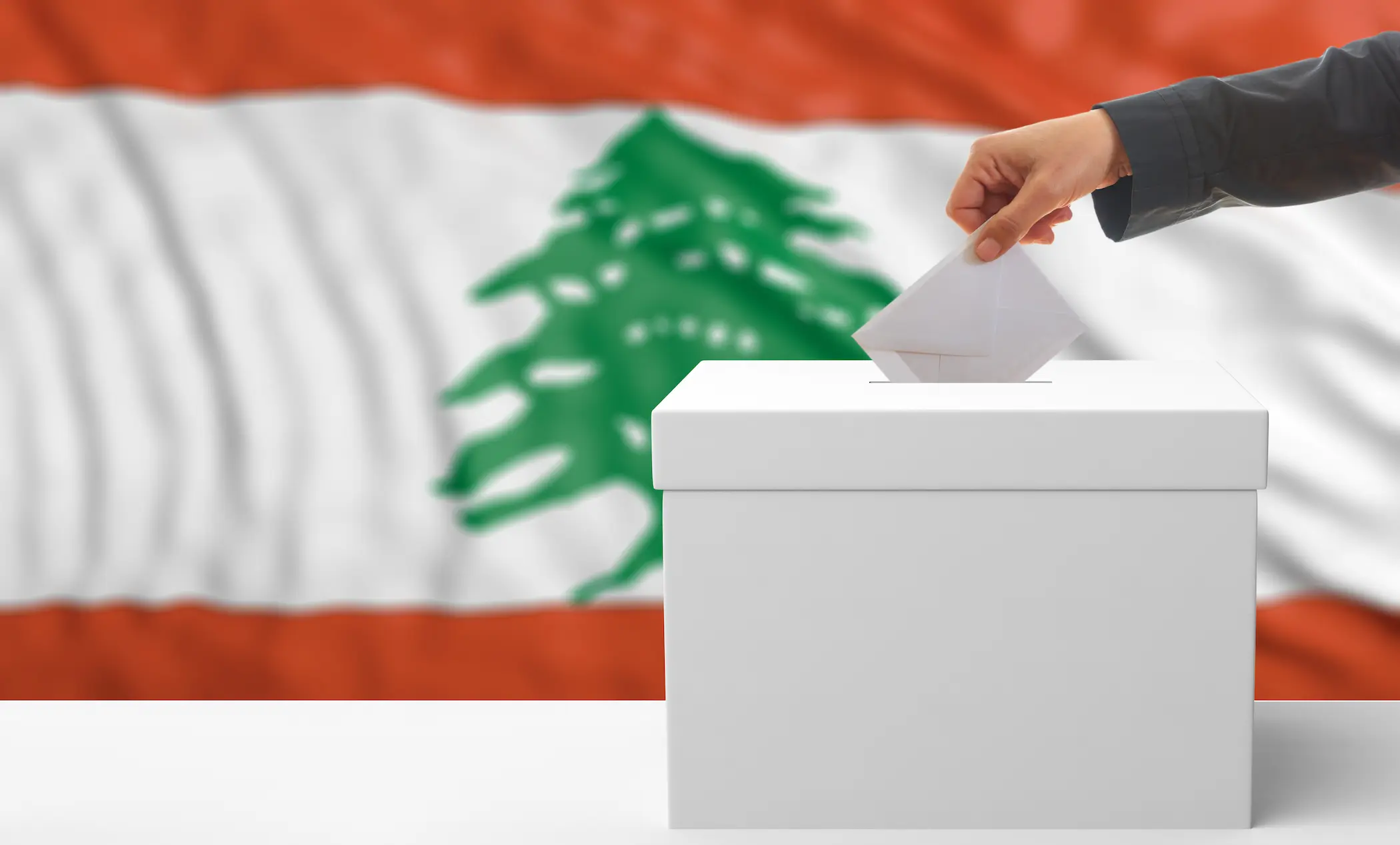Most Recent
13 Mar 2025
Silent Annexation: The Fate of Southern Syria
Caught in the crosscurrents of escalating regional and international rivalries, and witnessing an increasingly assertive Israeli presence, Southern Syria stands at a critical juncture. Ambiguity hangs heavy in the air, obscuring the long-term trajectory of a land grappling with fractured governance, demographic shifts, and the looming threat of further fragmentation. As international and regional actors jostle for influence and advantage, Israel's expansionist ambitions in the south proceed with a disconcerting sense of ease, guided by a methodical strategy and far-reaching objectives. This expansion, however, is not merely territorial; it is reshaping the very fabric of Southern Syria, impacting its social and demographic tapestry, and transforming it into a volatile arena for regional proxy conflicts. Meanwhile, the Syrian state, nominally in Damascus, grapples with deep-seated internal divisions and a diminished capacity to exert meaningful control, potentially paving the way for negative scenarios that threaten the nation's already fragile unity and sovereignty. This analysis aims to dissect these complex transformations, illuminating Israel’s calculated strategy, assessing the internal vulnerabilities of Syria, and anticipating the potential risks that lie ahead for this strategically vital, yet increasingly precarious, region.
10 Mar 2025
Sanctions and Self-Sufficiency: The Evolution of Iran’s Manufacturing Sector
For decades, Western countries, especially the United States (U.S.), used sanctions as a common tool to promote democracy and prevent certain nations from developing nuclear or chemical weapons. Iran, due to its efforts to develop nuclear weapons and other advanced technological weapons, has become a prime example, facing one of the strictest sanctions regimes in the world since the 1979 Iranian Revolution. These measures including the U.N. Security Council embargoes in 2007 and 2015, have had a major impact on Iran’s economy. However, alongside the economic hardship, sanctions have also spurred the growth of a domestic manufacturing sector, especially in defence and military industries, demonstrating the country’s capacity to adapt to hardship.
4 Mar 2025
A Troubled Chain of Command: Politics and the IDF
The appointment of Major General Eyal Zamir to the helm of the Israeli Army, will take office on March 6, transcends a routine leadership transition. It portends a potential strategic recalibration in Israeli military thinking, responding to evolving threats and perceived doctrinal vulnerabilities. Lauded across Israel's political spectrum as the right leader for these turbulent times, Zamir inherits a complex and precarious landscape. He is tasked with revitalizing an army perceived as "faltering," navigating a potentially obstructive political environment, and addressing a volatile region simmering with unresolved conflicts. Adding to the weight on his shoulders is the historical baggage he carries in the eyes of Palestinians, for whom his name evokes memories of harsh measures during past uprisings and operations. This analysis delves into the implications of Zamir's appointment, the delicate dance between political leadership and military autonomy in Israel, the anticipated doctrinal shifts under his command, and the spectre of looming confrontations on multiple fronts.
18 Feb 2025
The New Frontier: West Bank is the New Gaza
In recent months, the West Bank has witnessed rising violence. The timing in which the West Bank is witnessing escalation is not a coincidence, it is connected to the ceasefire in Gaza. While right-wing elements refuse the ceasefire deal, it is generally argued that Israeli Prime Minister Benjamin Netanyahu has to appease those elements in his coalition. Netanyahu who is believed to have been pressured to accept the deal, does not find any alternative to satisfy right wingers in his coalition other than shifting the war to the West Bank. While this understanding is not entirely false, it is suggested that recent events in the West Bank are part of Israel’s expansionist plan aiming at imposing Israeli sovereignty on the territory. Using legal and political manoeuvres, Israel aims to turn the West Bank into another Gaza which results in broader regional implications.
Early Warning
18 Feb 2025
The New Frontier: West Bank is the New Gaza
In recent months, the West Bank has witnessed rising violence. The timing in which the West Bank is witnessing escalation is not a coincidence, it is connected to the ceasefire in Gaza. While right-wing elements refuse the ceasefire deal, it is generally argued that Israeli Prime Minister Benjamin Netanyahu has to appease those elements in his coalition. Netanyahu who is believed to have been pressured to accept the deal, does not find any alternative to satisfy right wingers in his coalition other than shifting the war to the West Bank. While this understanding is not entirely false, it is suggested that recent events in the West Bank are part of Israel’s expansionist plan aiming at imposing Israeli sovereignty on the territory. Using legal and political manoeuvres, Israel aims to turn the West Bank into another Gaza which results in broader regional implications.
11 Feb 2025
What Is Beyond the USAID Controversy?
Recent decisions by U.S. President Donald Trump cutting aid to foreign countries and dismantling the U.S. Agency for International Development (USAID) have sparked global backlash. While the impact of cutting aid is substantial, the broader significance of this move cannot be overlooked. It reflects a deeper shift in the Trump administration’s foreign policy strategy. But what are the implications for the U.S. and its adversaries?
20 Jan 2025
Is the Russia-Ukraine War Nearing Its End?
President-elect Donald Trump has pledged to bring an end to the Russia-Ukraine war, though he has yet to specify how. A negotiated settlement appears to be the only viable path forward, as a decisive military victory for either side seems unlikely. Western nations, particularly those in Europe, are struggling with internal challenges, leaving them in a weak position with limited leverage at the negotiating table. Meanwhile, Russia also finds itself in an unenviable situation, creating a potential opening for Trump to encourage both parties toward a resolution. However, for any agreement to lead to lasting peace, security guarantees for Ukraine must be a central component. These guarantees are likely to be the key trade-off for any concessions that Europe would likely offer.
23 Dec 2024
The Fall of Al-Assad: Beyond the Defeat of a Regime
More than a decade after the outbreak of the Syrian Civil War, the unexpected fall of the Assad regime shocked many commentators and world leaders who believed that President Bashar Al-Assad had firmly consolidated his power. This development demonstrated that despite enduring years of civil war, Syria continues to hold strategic relevance at both regional and international levels. The conflict has provided an opportunity for regional and global powers to establish a presence in the country, amplifying the impact of the regime's collapse far beyond Syria's borders. Notably, the fallout has produced clear winners, with Turkey and Israel at the forefront, and losers, including Russia and Iran. Meanwhile, some European countries have discreetly benefited from the situation without openly acknowledging their gains.
Economics and Energy
10 Mar 2025
Sanctions and Self-Sufficiency: The Evolution of Iran’s Manufacturing Sector
For decades, Western countries, especially the United States (U.S.), used sanctions as a common tool to promote democracy and prevent certain nations from developing nuclear or chemical weapons. Iran, due to its efforts to develop nuclear weapons and other advanced technological weapons, has become a prime example, facing one of the strictest sanctions regimes in the world since the 1979 Iranian Revolution. These measures including the U.N. Security Council embargoes in 2007 and 2015, have had a major impact on Iran’s economy. However, alongside the economic hardship, sanctions have also spurred the growth of a domestic manufacturing sector, especially in defence and military industries, demonstrating the country’s capacity to adapt to hardship.
25 Dec 2024
From Displacement to Development: Syria’s Path to Reintegration
With millions of people displaced, massive destruction, and the destruction of entire businesses, the Syrian Civil War wreaked chaos on the country’s economy since it started in 2011, and whilesome countries have started to discuss deportation policies, many refugees started to return home in the hopes of rebuilding their country after the fall of the Assad regime. While the repatriation of refugees holds the promise of economic revitalisation, the multifaceted challenges of reintegration and rebuilding complicate the picture. Hence, a gradual reintegration policy under certain conditions, including international support especially from countries hosting the refugees is required to foster sustainable recovery.
17 Dec 2024
Vision 2030: Empowered Women, Transformed Kingdom
Saudi Arabia is undergoing a remarkable transformation across various sectors. Fuelled by ambitious reforms under Vision 2030. The Kingdom’s economy is not only reaching new heights, having recently achieved trillion-dollar status, but also aiming to be among the leading economies in the world. This economic shift is driven by diversification and substantial investments, fundamentally changing the country’s economic structure and aiming at strengthening its global position.
Another key driver of this growth is the rise in female participation in the workforce through increased educational opportunities, and a more inclusive cultural environment. Saudi Arabia has implemented significant reforms to empower women economically, creating a positive impact that extends beyond 2030 vision. As a result, the country is witnessing a significant boost in economic growth demonstrating the transformative power of women’s empowerment.
19 Nov 2024
COP 29: Another Missed Opportunity for Action?
Despite a 2009 pledge to mobilise $100 billion annually by 2020, this commitment remains largely unmet, hindering adaptation and mitigation efforts. The 2015 Paris Agreement, while aiming to limit global warming, faces implementation challenges due to insufficient pledges and a lack of accountability. Developed countries, bearing historical responsibility for the climate crisis, must assume a leading role in mitigation and provide adequate financial support. Unfulfilled pledges perpetuate a cycle of vulnerability in the Global South, exacerbating the impacts of extreme weather events and rising sea levels. Climate change poses a challenge to sustainable growth in a number of industries and is not just an environmental concern. It is also an economic one. Insufficient investment for climate change exacerbates problems including growing debt in developing countries, decreased agricultural productivity, food insecurity, and volatility in sectors like tourism. These issues, which are linked to global accords like the Paris Agreement, are pressing and need to be addressed.
Political Studies
13 Mar 2025
Silent Annexation: The Fate of Southern Syria
Caught in the crosscurrents of escalating regional and international rivalries, and witnessing an increasingly assertive Israeli presence, Southern Syria stands at a critical juncture. Ambiguity hangs heavy in the air, obscuring the long-term trajectory of a land grappling with fractured governance, demographic shifts, and the looming threat of further fragmentation. As international and regional actors jostle for influence and advantage, Israel's expansionist ambitions in the south proceed with a disconcerting sense of ease, guided by a methodical strategy and far-reaching objectives. This expansion, however, is not merely territorial; it is reshaping the very fabric of Southern Syria, impacting its social and demographic tapestry, and transforming it into a volatile arena for regional proxy conflicts. Meanwhile, the Syrian state, nominally in Damascus, grapples with deep-seated internal divisions and a diminished capacity to exert meaningful control, potentially paving the way for negative scenarios that threaten the nation's already fragile unity and sovereignty. This analysis aims to dissect these complex transformations, illuminating Israel’s calculated strategy, assessing the internal vulnerabilities of Syria, and anticipating the potential risks that lie ahead for this strategically vital, yet increasingly precarious, region.
4 Mar 2025
A Troubled Chain of Command: Politics and the IDF
The appointment of Major General Eyal Zamir to the helm of the Israeli Army, will take office on March 6, transcends a routine leadership transition. It portends a potential strategic recalibration in Israeli military thinking, responding to evolving threats and perceived doctrinal vulnerabilities. Lauded across Israel's political spectrum as the right leader for these turbulent times, Zamir inherits a complex and precarious landscape. He is tasked with revitalizing an army perceived as "faltering," navigating a potentially obstructive political environment, and addressing a volatile region simmering with unresolved conflicts. Adding to the weight on his shoulders is the historical baggage he carries in the eyes of Palestinians, for whom his name evokes memories of harsh measures during past uprisings and operations. This analysis delves into the implications of Zamir's appointment, the delicate dance between political leadership and military autonomy in Israel, the anticipated doctrinal shifts under his command, and the spectre of looming confrontations on multiple fronts.
10 Feb 2025
Turkey and Iran: Commonalities and Contradictions
Following the Arab Spring, Turkey and Iran started expanding their influence in the region, utilising the state of instability. While both countries compete over expanding influence in Syria, Iraq, and Azerbaijan, they managed to maintain strong mutual relations. The analysis examines foreign policy tools employed by both countries to maximise their benefits along with analysing the commonalities and differentiation of interests between them in the Middle East.
8 Jan 2025
Back to Square One: Will the Presidential Vacuum in Lebanon Come to an End?
Lebanese Parliament Speaker Nabih Berri reiterated his call for a general session of Parliament on Jan. 9, 2025, to elect a new president as Lebanon’s presidential vacuum stretches into its third year. This call comes amid an ongoing crisis that began on October 31, 2022, following the end of former President General Michel Aoun's term. Aoun’s departure marked the conclusion of a previous presidential vacuum that lasted for 29 months, during which 45 attempts to reach a quorum for his election were unsuccessful. In the current vacuum, Parliament has failed to elect a president after twelve sessions, the most recent of which was held on June 14, 2024. This series of unsuccessful attempts highlights the profound complexities of Lebanon’s political process.
Recent domestic initiatives aimed at resolving the presidential vacancy and reaching a consensus on a candidate have also faltered. Meanwhile, representatives from five key countries, the United States, France, Saudi Arabia, Egypt, and Qatar, continue their efforts to mediate and navigate the obstacles hindering Lebanon’s political forces from agreeing on a mechanism to address the protracted vacancy crisis.
Amid persistent uncertainty surrounding the identity of Lebanon’s next president, political circles have been actively circulating the names of potential candidates. Among these, Commander of the Lebanese Army General Joseph Aoun, has emerged as a strong contender and is widely viewed as a likely consensus candidate.
The upcoming parliamentary session has ignited significant hopes that it may produce tangible results and lead to the selection of a new occupant for Baabda Palace. However, this optimism is tempered by pressing questions about whether Lebanon’s political forces can overcome their divisions, resolve the presidential vacuum, and converge on a candidate amidst the shifting political dynamics within Lebanon and across the region.











